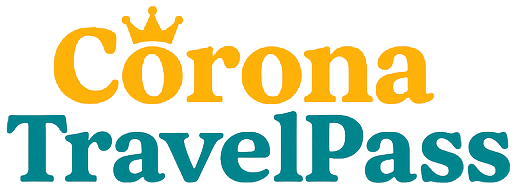Travel Advice and Advisories when Visiting Canada
Planning a Canadian getaway? Explore breathtaking landscapes and vibrant cities with confidence! This comprehensive guide provides essential travel advice, from navigating visa requirements and understanding Canadian laws to staying safe and healthy. Discover key resources like the Smart Traveler Enrollment Program (STEP) and crucial pre-trip preparations. Learn about Canada’s travel advisory levels and create a contingency plan for emergencies. Start your Canadian adventure prepared and informed – read on!
Important information

- A valid passport is required, and you may need a visa or eTA depending on your citizenship.
- Check Canada’s travel advisory levels and understand what precautions to take. Be aware of regional advisories too, concerning things like extreme weather.
- Research and understand Canadian laws regarding controlled substances (including cannabis), the legal drinking age (which varies by province), driving regulations, and public behavior expectations.
- Enroll in the Smart Traveler Enrollment Program (STEP) for safety alerts and emergency assistance, especially US citizens.
- Have a contingency plan: Share your itinerary, know emergency contacts (911 in Canada), and copy important documents.
Understanding Travel Advice and Advisories for Visiting Canada
Traveling to Canada? Here’s what you need to know for a safe and enjoyable trip.
Embrace Canadian Culture
Politeness is key. Simple “pleases” and “thank yous” are appreciated, as is respecting personal space. Embrace Canada’s multiculturalism by appreciating diverse customs and acknowledging the significance of Indigenous cultures.
Be Weather Aware
Canadian weather varies greatly. Winter can bring harsh conditions and heavy snow, potentially disrupting travel. Check forecasts and pack accordingly. Be mindful of possible wildlife encounters, both in urban and rural areas.
Understand Canadian Law
Cannabis is legal but regulated, with rules varying by province. Drinking ages also differ by province. Familiarize yourself with regulations for alcohol, cannabis, and other substances. Respect laws concerning driving, public behavior, and noise levels.
Prioritize Your Health
Ensure your routine vaccinations are up-to-date and consider additional ones based on your itinerary. Health insurance is crucial. Understand Canada’s healthcare system and how to access services if needed.
Enhance Your Safety
Register with your embassy or consulate upon arrival for assistance in emergencies. Secure your belongings, especially in crowded areas. Avoid isolated areas at night. Know local emergency numbers and have a communication plan.
Travel Documents
Ensure your passport is valid. Secure any necessary visa or Electronic Travel Authorization (eTA) in advance. Understand the laws regarding controlled substances, including province-specific cannabis regulations.
Enjoy your Canadian adventure!
Canada Travel Advisory Levels
Canada’s travel advisory system uses four risk levels to inform travelers about safety and security concerns.
Level 1 – Exercise Normal Precautions
This level means you should take normal safety precautions, similar to when visiting a familiar and safe place.
Level 2 – Exercise a High Degree of Caution
At this level, travelers should be more cautious and aware of their surroundings, but travel is not restricted.
Level 3 – Avoid Non-Essential Travel
This level recommends avoiding non-essential travel due to identifiable safety and security risks. Consider postponing your trip.
Level 4 – Avoid All Travel
This is the highest risk level and advises against all travel to the destination due to serious safety and security threats.
What Does Level 1: Exercise Normal Precautions Mean?
Stay aware of your surroundings and take sensible safety precautions.
Preparation Before Traveling to Canada
Planning your Canadian adventure? Follow these essential steps:
Enroll in the Smart Traveler Enrollment Program (STEP). This provides safety alerts and crucial emergency location assistance.
Review the Country Security Report for Canada. This helps you understand potential safety and security concerns.
Be mindful of your surroundings and create a contingency plan. Include communication strategies, emergency contacts, and alternative travel arrangements.
Consult the CDC page for Canada. This informs you of recommended vaccinations and health precautions to ensure a healthy trip.
Smart Traveler Enrollment Program (STEP)
Planning a trip or residing overseas? Safeguard your journey with STEP, the free service for U.S. citizens. This Smart Traveler Enrollment Program connects you with your nearest U.S. embassy or consulate, providing vital information and critical updates during emergencies. Should a crisis arise, STEP simplifies communication and enables the embassy to reach you.
Reviewing the Country Security Report
The Canada Country Security Report is crucial for travelers, providing essential information on safety and security conditions. This report helps travelers effectively plan and make informed decisions for a secure trip. Review it before your trip.
Creating a Contingency Plan for Emergency Situations
When traveling, a contingency plan is essential for navigating unforeseen problems. Familiarize yourself with local emergency numbers, such as 911 in Canada. Identify nearby hospitals and clinics, and maintain open communication with family and friends back home. Sharing your itinerary and expected return date is a crucial safety precaution.
Consider potential travel disruptions like natural disasters, medical emergencies, or lost luggage. Preparation is key. Photocopy important documents, including your passport and travel insurance, storing these copies separately from the originals for added security. This simple precaution can prevent significant headaches down the road.
Familiarize yourself with local emergency numbers. For example, 911 in Canada.
Identify nearby hospitals and clinics.
Maintain open communication with family and friends back home.
Share your itinerary and expected return date with someone you trust.
Photocopy important documents, including your passport and travel insurance.
Store copies of your documents separately from the originals.
Visiting the CDC Page for Travel Health Information
Planning a trip to Canada? The CDC website offers valuable travel health information, including recommended vaccinations and current health advisories. Check it out to prepare for a safe and healthy trip.
Travel Information and Immigration Rules
Planning your Canadian adventure? Stay informed about evolving immigration rules. A valid passport is a must, and you might need a visa or eTA based on your citizenship. Familiarize yourself with Canadian laws, especially concerning substance use and possession, including cannabis, as regulations vary by province. Provincial drinking ages also differ, so research in advance. Understanding driving laws, public behavior expectations, and noise ordinances is key to a smooth trip. For the latest travel advice, especially for US citizens, check official government websites.
Essential Documents
- Valid passport is mandatory for all travelers.
- Visa or eTA may be required depending on your nationality.
Know Before You Go
- Canadian laws: Research substance use and possession regulations, including cannabis, as they vary by province.
- Drinking age: Check the legal drinking age in the specific provinces you’ll be visiting.
- Local regulations: Understand driving laws, public behavior expectations, and noise ordinances.
Step 1: Check Visa/eTA Requirements
Determine if you need a visa or an Electronic Travel Authorization (eTA) based on your nationality. This is crucial for a smooth entry into Canada.
Step 2: Understand Substance Laws
Research Canadian laws regarding substance use and possession, including cannabis. Regulations vary by province, so be sure to check the specific rules for the areas you’ll be visiting.
Step 3: Verify Drinking Age
Confirm the legal drinking age in each province you plan to visit, as it can differ across Canada.
Step 4: Review Local Regulations
Familiarize yourself with driving laws, public behavior expectations, and noise ordinances to avoid any legal issues during your trip.
Step 5: Stay Updated
Consult official government websites for up-to-date travel advice, especially if you’re a US citizen. Staying informed about any changes in regulations is essential for a hassle-free journey.
Understanding Visa Requirements and Registration
Canadians spending more than 30 days in the U.S. must register with American authorities. This is essential to avoid penalties, fines, and even misdemeanor prosecution.
Updates on Canada’s Travel Advice for US Citizens
Due to shifts in US immigration policy, Canada has revised its travel advisory for American citizens. These policy adjustments have sparked diplomatic concerns, with Canada expressing apprehension about their potential impact on foreign nationals.
Security Precautions and Regional Advisories
Prioritize safety during your Canadian travels by staying aware of your surroundings and safeguarding your belongings. Stay informed about regional advisories issued by local authorities regarding specific situations like extreme weather and natural disasters. For example, British Columbia might issue wildfire advisories, while the Atlantic provinces could have hurricane warnings. Check for other pertinent local alerts, too.
How to Stay Safe While Traveling in Canada
Be vigilant, especially in crowded areas.
Safeguard your belongings.
Avoid isolated locations, particularly after dark.
Respect local laws and customs.
Memorize emergency contacts like 911.
Establish a plan for seeking assistance if needed.
Monitor weather conditions.
Familiarize yourself with local wildlife, for instance, learn how to react if you encounter a bear.
Regional Advisories for Travelers
Planning a trip across Canada? Be sure to check official sources for travel advisories specific to your destination. Some areas may have warnings about wildlife encounters, such as bears or moose. Others might highlight extreme weather conditions or natural disasters. Advance planning is key for a safe and enjoyable journey. Consult these resources before your trip:
- Parks Canada: for information on national parks and wildlife safety,
- Weather Canada: for up-to-date forecasts and weather warnings,
- Provincial/Territorial websites: for region-specific travel information.
Special Considerations for Different Traveler Groups
Planning a trip to Canada as an LGBTQ+ traveler? Research welcoming destinations and events to ensure a positive experience. Transgender travelers can find helpful resources online, such as the Canadian Professional Association for Transgender Health (CPATH), which offers information on healthcare access. Nonbinary travelers should verify their travel documents, ensuring passports and other identification align with their gender identity to avoid potential issues at the border. For extended stays, familiarize yourself with each province’s healthcare system and consider travel insurance that covers longer trips. Finally, respecting local laws and customs will contribute to a smooth and enjoyable visit.
Tips for LGBTQ+ Travelers to Canada
- Research LGBTQ+ friendly destinations and events.
- For transgender travelers, consult resources like CPATH for healthcare information.
Additional Travel Advice
- Nonbinary travelers should verify travel documents align with their gender identity.
- For extended stays, research provincial healthcare systems and consider travel insurance.
- Respect local laws and customs for a smooth and enjoyable visit.
LGBTQ+ and Transgender Travelers
Canada welcomes LGBTQ+ visitors. However, researching local laws and customs specific to your destinations before your trip will ensure a smoother, more enjoyable experience.
Nonbinary Travelers and Cross-border Travel
Nonbinary travelers to Canada should ensure their appearance aligns with their identification documents to avoid complications at the border. Familiarizing yourself with Canadian regulations for nonbinary travelers can expedite the arrival process.
Advice for Long-term Visitors
Planning a Canadian adventure lasting over a month? U.S. citizens enjoying extended stays (beyond 30 days) should register with the closest U.S. embassy or consulate. This quick process enables the U.S. government to provide assistance during unforeseen emergencies, acting as a crucial safety net. Furthermore, registration helps travelers sidestep potential fines and legal complications that can arise from exceeding the standard 30-day visitor limit. Registering ensures a worry-free, extended stay in Canada.
Benefits of Registration:
- Emergency assistance from the U.S. government.
- Avoidance of potential fines.
- Prevention of legal complications.
Who Should Register?
U.S. citizens planning to stay in Canada for more than 30 days.
Resources for U.S. Citizens Traveling in Canada
Traveling Americans in Canada can find assistance at the U.S. Embassy in Ottawa. This invaluable resource, along with U.S. Customs and Border Protection guidelines, can help clarify border crossing procedures.
U.S. Embassy Ottawa Assistance
The U.S. Embassy in Ottawa provides vital support to American citizens traveling or residing in Canada. The Embassy offers a range of services, including passport assistance, financial emergency aid, legal referrals, and medical care guidance. It also delivers crucial safety and security updates, making it an invaluable resource for Americans in Canada.
U.S. Customs and Border Protection Guidelines
For a smooth border crossing, CBP offers helpful resources on their website. Their “Know Before You Go” section is particularly valuable, outlining everything from required documents to prohibited items like certain foods and plants.
By familiarizing yourself with these guidelines and customs procedures, you can ensure a stress-free and efficient travel experience.
















